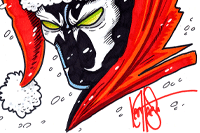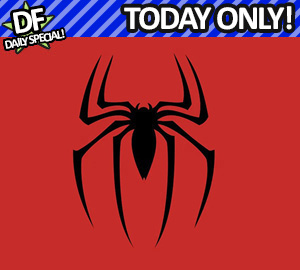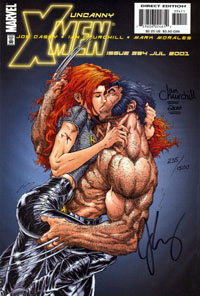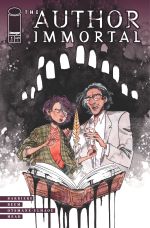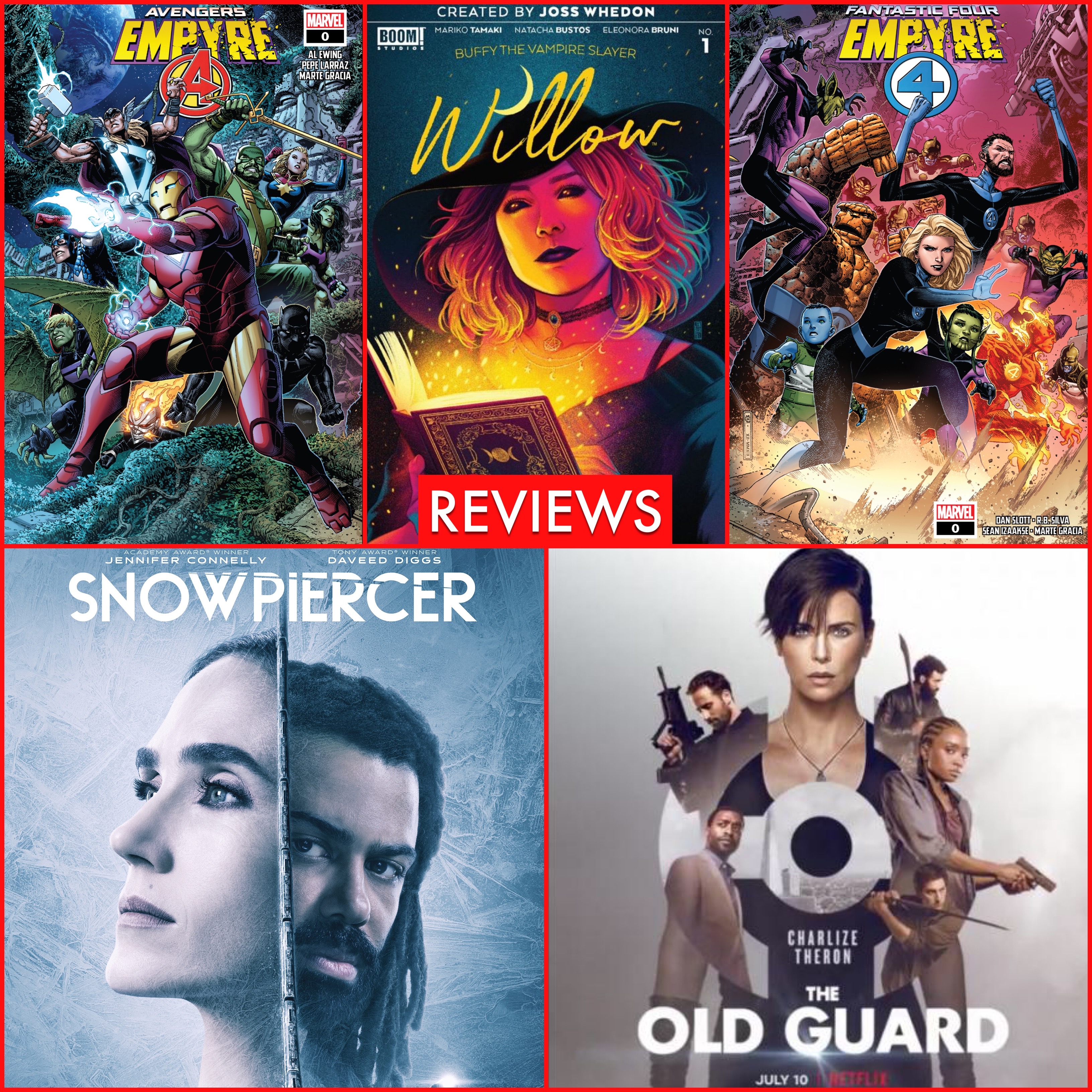|
 |
WAITING
FOR TOMMY: JOE CASEY
By
Richard Johnston RICHARD:
"Swinging For The Fences". It's the title of an autobiography.
Let's look at some of those balls: Superman. X-Men. Batman.
Cable. Hulk. WildCATS. I read a story by you from Dark Horse
not too long ago where you wrote about the pressures of writing
for thinly disguised franchises. How have you found working
on such properties affects you and your work? Have things
improved as you've gained name recognition?
JOE:
When it comes to pre-existing, company-owned characters, I
can get my geek on just as much as the next guy. Maybe even
more so. But I do have specific tastes. Had I been a complete
nut for the X-Men, I might've done a better job on that book.
But I wasn't, and although I did the best I could under the
circumstances, the missing ingredient that could've made it
a lot better for me and for the readers was, for lack of a
better term, "love". I eventually learned to love those characters,
but I didn't have it going in, and that's where I f**ked up
on that gig. You've got to be strong right out of the gate.
I love
Superman as a character and as a myth, but the realities of
working on what's become such a corporate controlled trademark
can obviously get you down once in awhile. If anything, I've
been guilty of caring too goddamned much and when that happens
you're always risking heartbreak. Some lessons just have to
be learned the hard way, I guess. I have to be honest with
myself now and when I consider what company-owned superheroes
I'd like to take a shot at writing in the future, it'll only
be the ones that I loved as a kid. Writing the big franchises
when you don't always have 100% enthusiasm for them can be
a painful experience, because you certainly aren't going to
get 100% creative freedom. So you have to love them almost
unconditionally. Name recognition means nothing in the absence
of passion for what you're writing. That, and a newfound personal
understanding on how to write classic, well-known superheroes
should make whatever happens next in my career fairly interesting.
RICHARD:
Where did these f**kups happen do you reckon? And this new
understanding - would you consider yourself a born-again traditionalist?
JOE:
"Born again"? I don't know about that. On the right property,
I'm all about tradition. When I wrote UNCANNY X-MEN I had
no problem vowing to myself and anyone that would listen that
I was going to do "new" things with the series (like I said
before, I'd never been a huge reader of the X). Things you'd
never seen in an X-Men comicbook. In other words, not just
the same old crap you'd read a million times before. No, I
was gonna' give you all-new crap. Mutant whorehouses, Supreme
Pontiffs, teen pop pregnancy scandals and mutant drug lords.
I thought I was being revolutionary but -- while I'm not ashamed
of the work I did -- I was completely off the mark in a lot
of my thinking.
Meanwhile,
over in NEW X-MEN, besides the fact that he's a top-notch
comicbook writer, Grant trotted out the Sentinels, the Shi'ar
Empire, he dealt extensively with Xavier's school, the Hellfire
Club, he's currently in the middle of a Magneto storyline
and all signs point to his collaboration with Silvestri as
yet another take on the "Days Of Future Past" concept. Basically,
he did all the "classic" elements that X-Men readers want
to see. but they want to see them done well. And, of course,
when Grant brings in a new element like Fantomex, the majority
of longtime X-readers scream bloody murder because it's not
familiar (no matter how well-done it is). So, what I've learned
is that the mythology of any given superhero concept is an
all-inclusive thing that's not limited to the core concept.
it includes their greatest enemies, their greatest adventures
and certain specific chords that are struck with the readership.
The Fantastic Four without Doctor Doom, Galactus and the Negative
Zone is an incomplete mythology. To write those classic, long-running
series with any degree of success, you have to learn how to
play those chords and play them well. Some wheels simply don't
need reinvention. they simply need to be greased once in awhile
with the best quality oil you can find. And for a writer,
this can be great fun. on the right property.
WILDCATS,
on the other hand, doesn't have much -- if any -- real tradition
to draw on, so I feel more free to create some of my own.
But with the venerable superhero concepts that have been around
longer than you or I have been alive (and will undoubtedly
outlive us all), there's a definite playbook you can refer
to. It's up to the writers and artists to call the plays and
to execute them with style and verve.
RICHARD:
WildCATS uses the aspects of superheroes to create a new genre
- super company executives. What other aspects of society
or literature could gain a new narrative edge by making the
characters 'super'? What else should be tackled by my new
term, I just made it up, it's mine, "superfiction"?
JOE:
Gossip columnists, unquestionably. I think the world is ready
for "super-gossip". Or maybe "hyper-gossip". At the very least,
"meta-gossip".
RICHARD:
Hmmm. I'll pitch Wildstorm later this week. Need a name of
course. Chinese Whisper? The Grape Vine? Ohh, I know. THE
GUTTER. Of course. Care for a WildCATS crossover sometime,
once Jim Lee gives the automatic rubber stamp to such a superb
idea? Maybe HALO could invent a perpetual motion rumour generating
machine, threatening The Gutter's very raison d'etre and they
could fight and exchange cutting remarks? Oh go on then, you
come up with something better.JOE: For free? Oh, I
don't think so.
RICHARD:
Damn. Why did you break up Casey and the Sunshine band?
JOE:
Don't you mean "K.C.".?
But,
to answer your question (if you could call it that). why the
break up? Because we sucked, obviously.
C'mon,
Rich. you can do better than this.
Pages:
1 | 2
| 3 | 4
Continued Here... |
 |

